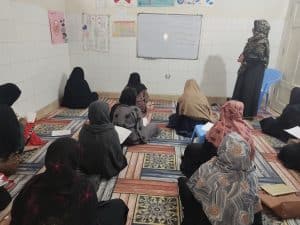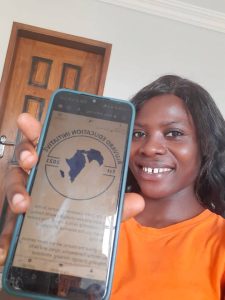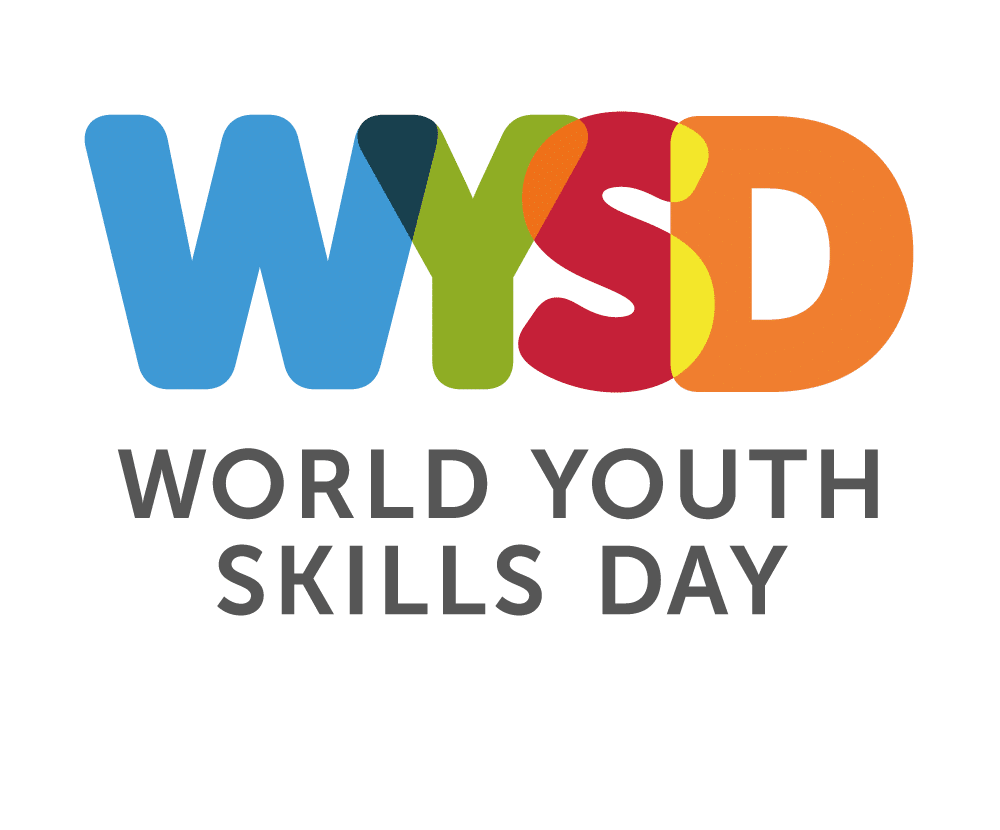Why education matters

In a world facing mounting challenges, one solution cuts across every issue: education. It’s not just the foundation of personal growth; it’s the heartbeat of sustainable development and quiet revolution and possibly the world’s smartest investment.
When Augustina Ojochenemi Ahman began teaching in a rural Nigerian community, she noticed that one of her pupils, a young girl named Tosin, was struggling.
“Tosin hardly came to school, maybe once or twice a week. She had very low self-esteem and little interest in learning, mostly because she struggled with reading,” Augustina recalls.
Determined to make a difference, Augustina, a committed advocate of gender equality (you can read more about her story here: From pain to power: Augustina’s story – SkillEd), created a safe space where Tosin could learn at her own pace.
“I focused on building both her literacy and confidence. Slowly, she began to open up. She started reading simple words, then short sentences, and over time, she found joy in learning”, Augustina remembers.
 Today, Tosin is not only the class captain, but she also leads the school’s literacy club. Her scores have improved from an average of 42–45% to 75–84% in the last two terms. More than that, she now shares her story to encourage other struggling learners, helping them believe they can learn too.
Today, Tosin is not only the class captain, but she also leads the school’s literacy club. Her scores have improved from an average of 42–45% to 75–84% in the last two terms. More than that, she now shares her story to encourage other struggling learners, helping them believe they can learn too.
“For me, education has been more than just learning. It’s been a tool for transformation. It gave me a voice, a purpose, and the courage to dream bigger than my environment allowed”, says Augustina. “Education is like a virus, it spreads. It changed me, I helped to change Tosin, and now Tosin is helping others. That’s the power of education: it keeps going, transforming lives one learner at a time.”
A tool for transformation
Augustina’s and Tosin’s stories are inspiring. And they are not unique. Across the globe, education empowers individuals to challenge injustice, redefine possibility, and lead change.
Guus Paardekooper, CEO and co-founder of SkillEd, puts it simply:
“Education is the start of any structural social development and is specifically key for improving the position of women in their societies.” He adds: “That’s why we also prioritize supporting blended learning for remote communities and vulnerable groups—because that’s where education can have the most profound and almost immediate impact.”
At the Bluvard Education Initiative, one of SkillEd’s collaboration partners, program manager Gbolabo Adedoyin shares this belief deeply:
“I believe Education is the key to unlocking the potential of individuals, communities, and societies. I’ve witnessed education’s transformative impact on young people from low-income and underserved communities.”
 In Adamo, Ikorodu, a community on the outskirts of Lagos State, nine months ago, Bluvard launched a free learning center offering youth from underserved communities opportunities to break the cycle of poverty. Among its standout efforts was the Halfway School Program.
In Adamo, Ikorodu, a community on the outskirts of Lagos State, nine months ago, Bluvard launched a free learning center offering youth from underserved communities opportunities to break the cycle of poverty. Among its standout efforts was the Halfway School Program.
This initiative supports out-of-school youths who haven’t transitioned to higher education due to financial or academic challenges.
Through project-based learning, students gained practical skills in leadership, digital literacy, green solutions, and entrepreneurship. Gbolabo who was tasked with leading programs that align with equipping young people with the tools needed to break the cycle of poverty.
“Our goal is that our students thrive, not just survive, in an evolving digital world.” Gbolabo remembers many students, among others Philip, who – just weeks into the training – secured a paid graphic design gig from Canada, used the money to purchase a laptop, and now runs creative services.
The ripple effects of education: What Data shows
Education does far more than teach literacy and numeracy – it strengthens the very fabric of society.
When people have access to quality education, the benefits go far beyond personal achievement. It reshapes communities, economies, and even global trends. Data from UNESCO, UNICEF and the World Bank show:
Health & Family Well-being
- Educated women have fewer, healthier children and make informed family planning choices.
- Each additional year of schooling can increase life expectancy by up to 0.6 years.
- Education leads to healthier lifestyles: less smoking, more exercise, better nutrition.
Crime & Civic Engagement
- A one-year increase in education can lower arrest rates by 11%.
- Education boosts civic participation, trust, and social cohesion.
Economic Growth
- Higher workforce productivity and innovation.
- Lower poverty rates and increased income.
- Education improves gender equity, raising women’s earning potential and agency.
Migration & Resilience
- Informed migration decisions and better integration into host societies.
- Reduced pressure for forced migration due to economic or climate instability.
Fueling Innovation: Education and the Global Talent Pool
When young people – especially from the Global South – access quality education, innovation accelerates worldwide.
- Diverse minds bring fresh perspectives to solving climate change, public health, and inequality.
- Education enables participation in global research, tech development, and entrepreneurship.
- It expands the talent pool for breakthroughs in AI, green tech, and medicine.
- Reduced brain drain allows educated individuals to build futures in their home communities.
UNESCO’s Global Education Monitoring reports affirm that inclusive education systems create sustainable growth and resilience. And each educated individual becomes a node in a wider network of progress.
The Cycle of Change
Education creates a self-reinforcing cycle:
• Educated parents raise empowered children.
• These children build inclusive societies.
• Societies with strong education systems are safer, healthier, and more innovative.
When education reaches every corner of the globe, it doesn’t just lift individuals — it lifts industries, economies, and the pace of human progress. And it all begins with one learner.

